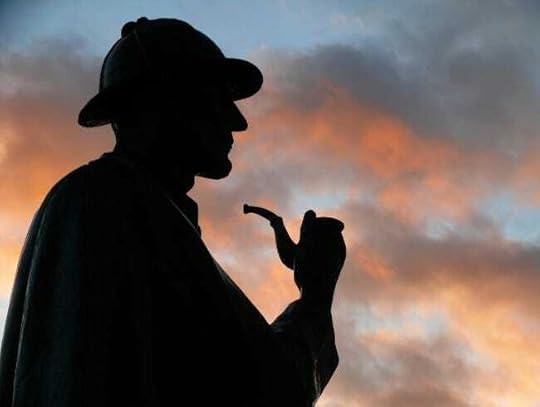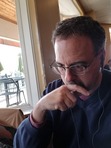You're Not Doing Your Own Research

In the news this week:
Despite leading the government department tasked with advising Americans on their health and safety, Robert F. Kennedy Jr. told new parents Monday to “do your own research” on vaccines.
The Health and Human Services secretary, a longtime anti-vaccine conspiracy theorist, made the comments on Merit TV’s “Dr. Phil Primetime” Monday night, echoing a common refrain vaccine skeptics used to spread misinformation during the COVID-19 pandemic.
“I would say that we live in a democracy, and part of the responsibility of being a parent is to do your own research,” Kennedy said when asked how he’d advise new parents about vaccine safety. “You research the baby stroller, you research the foods that they’re getting, and you need to research the medicines that they’re taking as well.”
I’m not a doctor or a scientist or an infectious disease specialist, so I’m not going to talk about the effectiveness of vaccines. What the hell do I know? I’m a writer, an educator, and a you-never-really-stop-being-an-English-major kind of guy. So, I’m going to talk about words—words like “research”—and I want to take the radical position that words have actual meanings, and that our attention to those meanings is important.
Scenes from a Broken Hand is a reader-supported publication. To receive new posts and support my work, consider becoming a free or paid subscriber.
I know: this is going to make me seem like a frowny, old curmudgeon and a linguistic conservative. I’m not, really. I love words; I love people who can bend and twist language to their poetic will. But “swag” doesn’t mean the same thing as “swagger.” It just doesn’t. And when you use the first word to mean the second word, you’ll end up confusing your friends when you tell them that you picked up some cool swag at the conference last week.
“No, you won’t,” you might say. “Your friends will understand what you meant, because of the context of the sentence.” Well, that might be true right now, and it might continue to be true for a while. People who remember the original meaning of the word will know from context what you mean. But that won’t last forever. You can’t depend on people always hearing what you meant instead of what you said.
That kind of sloppiness of usage puts all the burden of understanding on the listener, and I don’t think that’s right or fair. I don’t have to speak carefully, because it’s up to you to figure out what I meant. No. When I’m trying to communicate, it should be my responsibility to convey what I mean, not your responsibility to sift through the detritus to figure out what I’m trying to say.
Some of the sloppiness isn’t our fault, of course. We use the words we were taught.
One example: when people say, “trust the science,” we tend think of “science” as a static body of knowledge that we’re supposed to learn and accept as true, because that’s how we were given the word at school. We took classes in a subject called “science,” and we were told that our job was to learn the stuff they taught us. Science = stuff to know.
Which is why, now, when something a scientist says turns out to be wrong, it’s easy to discount the entire body of knowledge and the experts who keep telling us to trust it. We learned their stuff, but their stuff is wrong.
But “trust the science” actually means “trust the process,” because outside of school, science is more a dynamic method of knowing than it is a static thing to be known. And that method of knowing—posing hypotheses and then designing experiments that isolate variables in order to detect and measure changes in effect, has had a pretty impressive track record since the 17th century. As an effective way of gradually uncovering the truth about life on this planet, it has no rival.
Actual scientists know that the process they engage in, day to day, identifies error and proves things un-true far more frequently than they prove things true. Truth is what’s left when all of the things that aren’t true have finally been revealed (if that day ever comes). As Sherlock Holmes says, in the classic story, “The Sign of the Four:”
How often have I said to you that when you have eliminated the impossible, whatever remains, however improbable, must be the truth?
If you understand that meaning of the word “Science,” it’s hard to yell about how, “science got it wrong.” No, it didn’t. Science just continued science-ing, evolving its understanding through experimentation, error, and research.
Which gets us back to our word of the day: research. Robert F. Kennedy doesn’t want you to rely on some government agency to tell you whether vaccines are safe. He wants you to do your own research. But you don’t do your own research. I’m sorry. Most of you have never done your own research. I’m not trying to be mean or condescending here. It’s just the truth. Words have meanings. You have, very likely, researched a topic here and there, over the years. But you have probably not “done your own research.” And they’re not the same thing.
This slipperiness of meaning, as with the word “science,” is the fault of our schooling. We were all taught to write “research papers,” once upon a time, and so we’ve all grown up using the word “research” to mean looking things up. And that’s not a wrong definition. As Kennedy says, we research which baby stroller to buy. We research where to go when we visit a new city. We research which restaurant got the best review. But it’s not the same—and it’s not a substitute—for actually “doing research.” When we research something, we’re looking up knowledge that other people have already generated. We’re reviewing what exists more than we’re revealing something hidden.
Which is fine! That’s why we have experts—to do the research and generate the knowledge for us. We don’t, each of us, visit every restaurant in town and create our own rating systems based on our own sets of objective criteria so that we can compare one restaurant to another; we let somebody else do that—someone who knows something about food preparation and the restaurant business. We don’t compile multi-point, comparative assessments of every baby stroller on the market; we let Consumer Reports do it for us. That’s their job.
In every one of these cases, we rely on someone else’s expert judgment, because we lack both the time and the background knowledge (see my recent post about expertise) to do the actual research required to understand, rate, and compare things. Our research is that we go online to study the research they’ve done. They teach; we learn.
I had to engage in both kinds of “research” when pursuing my doctorate in education. The school-y way of doing research was called a “literature review” (note the word “review” there). My job was to read everything I could find on the subject I was studying, to the point that my professors called, “saturation” (where I stopped seeing new names and new information—where every new article was just a recapitulation of what I had already seen). All I was doing was reviewing what other people had discovered, but it had great value. I learned the field. I read the results of actual research, written by the researchers themselves. It laid the groundwork for the second type of research I had to do: original, hands-on work of my own, where I had to conduct my own experiment, gather my own data, perform my own analysis, reach my own conclusions, and write a dissertation. That was my turn to teach.
Very few of us do that kind of research. But that is where new knowledge is created—where new errors are uncovered or new discoveries are made—where new steps toward “true” are taken.
Is that what Robert Kennedy is expecting us to do? Conduct our own experiments? Reach our own, evidence-based conclusions? Discover some heretofore hidden truth about vaccines, and become heroes of the day?
No?
Maybe he’s expecting us to conduct graduate-level literature reviews, immersing ourselves in the breadth and depth of the relevant research so that we can assess who the major players are, what their positions are, what they say about each other, and who is most credible? Reject the academy; refuse to be fooled and taken in by their indoctrination.
Okay, but how many of us have the background knowledge or the time to attempt that kind of literature review—to read not watered down summaries, but the original research conducted by real scientists, to learn for ourselves, unmediated, what they have done?
Let’s be clear. When Kennedy says, “do your own research,” what he means is: go forth and dabble to your heart’s content. Hunt and peck on your computers. See what the influencers are saying on YouTube and TikTok, or Fox and MSNBC, or your local nail salon, or the pickup line at school. He’s not freeing us or empowering us to become our own experts. He’s abandoning us. He’s removing our access to people who really know things, and he’s telling us to go trawl the Internet to find…whatever we find interesting, armed with no relevant background knowledge to guide us and no criteria for evaluating who is talking to us or what they’re saying.
Look, I’m not saying we should dumbly and blindly trust experts because we’re too ignorant to do our own thinking. Of course not. There’s nothing wrong with educating yourself in a field you care about, to understand the issues, the challenges and arguments, the evolving consensus, and so on. Being an educated adult and a critical, thinking citizen is a good thing. Learning how to assess different arguments, learning how to be a skeptical and informed consumer—that’s important! But there’s only so far that the average person is going to be able to go. And we need to be honest that whatever useful education we can harvest for ourselves is coming from intellectual fields that have been planted and cultivated by…experts.
Kennedy doesn’t expect us to become true experts. He’s saying, “to hell with experts. What do they know?” He’s razing the fields they’ve planted and he’s saying, “You’re as good as they are. There are no evidence-based conclusions; there are only opinions, and yours are as good as anyone’s.” But that’s not freedom; it’s chaos. We’ll end up stumbling around in a funhouse mirror-room of confirmation bias, where all we’re liable to find are restatements of what we already think.
And that’s fine with him. Believe what you like! Kennedy is saying, “We’re not in charge anymore. We’re firing the gatekeepers and pocketing the cash. You’re on your own.” Except, of course, he’d never really say that.
I’d actually respect him more if he did. I’d respect the whole bunch of them more if they came right out and said, “We’ve decided that it’s not the government’s job to keep you healthy and safe, or even to provide you with expert opinions on topics important to you. We’re shutting all of that down. From now on, we’re just printing money and guarding the border.” At least we’d know where we stood.
It’s hard to keep your head straight and focus on the true meanings of words in a world soaked in propaganda and bullshit, but goddamn it, we have not always been at war with Eurasia. Somebody has to keep track of what’s true.
Scenes from a Broken Hand is a reader-supported publication. To receive new posts and support my work, consider becoming a free or paid subscriber.
Scenes from a Broken Hand
- Andrew Ordover's profile
- 44 followers



